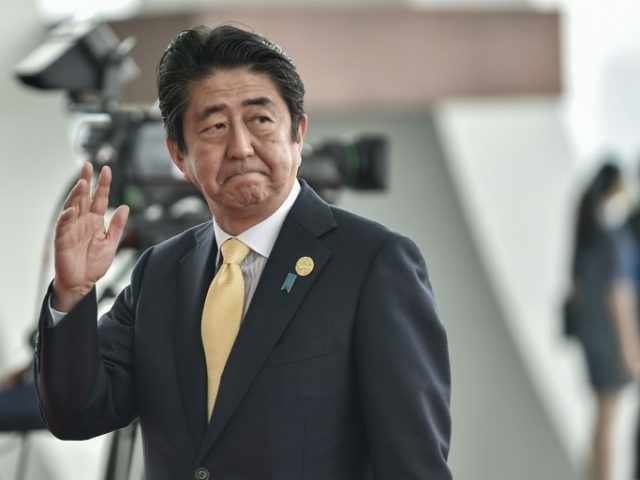Prime Minister Shinzo Abe is the first foreign leader scheduled to meet American President-elect Donald Trump. The two are expected to meet in person on November 17, an arrangement made today via teleconference.
The Japanese news outlet Kyodo reported today that Japanese officials confirmed the conversation between Abe and Trump, following Trump’s electoral victory on Tuesday. The conversation, Chief Cabinet Secretary Yoshihide Suga told reporters Thursday, “marks a very good start for building trust” between the two world leader. “Today (the two) have just agreed to meet. It’s important to first build up personal trust and talk about basic things,” he added.
Japan is a key American ally; Japan, not possessing its own formal military, depends on America for many of its defense needs.
The conversation allegedly lasted around 20 minutes and culminated with a promise to meet again. Abe is expected to travel to the United States next week on his way to Peru for Asia-Pacific Economic Cooperation (APEC) summit there.
Abe is one of ten heads of state, not including American President Barack Obama, at press time who have spoken to President-elect Trump, congratulating him and opening the bilateral line of communications. Trump has spoken to the leaders of Egypt, Ireland, Mexico, Israel, Turkey, India, Japan, Australia, the UK and South Korea. A working relationship with Turkey’s head of state, Recep Tayyip Erdogan, may be the most difficult yet necessary to develop, as Turkey has strong-armed its way into playing a role in fighting the Islamic State in Syria and Iraq.
Abe’s conversation with Trump in part attempted to assuage the fears of many Japanese people who have expressed concerns about Trump’s pro-America policies during the course of the campaign. A whopping 88 percent of Japanese voters preferred Democratic rival Hillary Clinton to Donald Trump, the South China Morning Post reported, many concerned that Trump would scale back military involvement in the Asia-Pacific region, leaving Japan vulnerable to an increasingly belligerent China.
“At some point we have to say, you know what, we’re better off if Japan protects itself against this maniac in North Korea,” Trump said in March, implying that he may be open to the possibility of allowing Japan to develop nuclear weapons in self-defense, rather than relying on the U.S. military. “We are supporting them, military, and they pay us a fraction, a fraction of what they should be paying us, and of the cost. We are supporting Japan.” Trump mulled the possibility of spending less money on self-defense for both Japan and South Korea.
“We consider that what a candidate said during a political campaign can be different from what the candidate will actually do after taking office,” a Japanese official told The Japan Times of those concerns. “There may be some issues over specific policies, but the basic relations between the two countries won’t change.”
The response in Japan to these remarks at the time, according to national newspaper Asahi Shimbun, was “bewilderment and unease.” Foreign Minister Fumio Kishida called the idea of a nuclear Japan “impossible.”

COMMENTS
Please let us know if you're having issues with commenting.